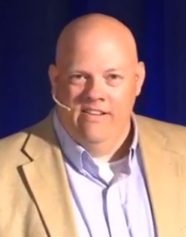A MESSAGE FROM THE REV. J.C. AUSTIN: THE BLESSING OF ORDINATION
This Sunday, we will be ordaining new Elders and Deacons, and then installing them to office along with our Trustees (Trustees are installed into their crucial roles of leadership, but it is not an ordained office).
Ordination and Installation Sunday is always a highlight of the year  for me personally; it is the culmination of literally months of conversation, prayer, discernment, and training for both those being ordained and for the Congregational Nominating Committee which begins its work every fall in seeking out those whom God is calling to serve in an ordained capacity in this congregation.
for me personally; it is the culmination of literally months of conversation, prayer, discernment, and training for both those being ordained and for the Congregational Nominating Committee which begins its work every fall in seeking out those whom God is calling to serve in an ordained capacity in this congregation.
As I have often stressed, one of the hallmarks of the Presbyterian Church is that the members of the church elect their leaders, and nothing can interfere with that. The Session does not have a role in either nominating or electing leaders for the church; it only supervises the actual ordination and installation process once those leaders have been nominated and elected by the congregation.
I, as the pastor of the church, am an ex officio member of the Congregational Nominating Committee, which means that I can advise the committee, but they don’t have to take my suggestions. As pastor, I have no power to choose or block anyone for nomination; in fact, I do not even get a vote in the process! So those being ordained today were called by God and this congregation to serve as Deacons and Elders, and they have answered that call with a willingness to serve and spent the time between the Annual Congregational Meeting and now in training to serve.
As we prepare to ordain and install people this Sunday, I think it’s important to pause for a moment and remember what ordination means in the Presbyterian Church and what these offices, in particular, are charged to do.
For six years, I served as the Visiting Professor of Presbyterian Governance at Union Theological Seminary in New York City (which is a fancy way of saying that I taught a course in Presbyterian government, or “polity,” that is required for people seeking ordination as a Minister of Word and Sacrament!).
In my teaching, I always told my students that ordination in the Presbyterian Church is to service, not to status; people who are ordained are not any more important or holy or powerful than anybody else in the life of the church, they have simply been called to serve to particular service because of their gifts, skills, and personal ministries.
And our ordination “hierarchy” is horizontal, not vertical; Ministers of Word and Sacrament are no more ordained than Deacons or Elders, they just fulfill a different function: preaching and teaching the Word and administering the sacraments.
Elders could also be called Ministers of Governance and Discipline in that sense; their function is to come together in councils to make decisions about the mission and ministry of the church and to cultivate a sense of mutual respect and care in the life of the congregation. Deacons could be called Ministers of Compassion and Justice in the same way; their role is to ensure that those who are experiencing poverty, illness, or other such needs are cared for, and to help the congregation address systemic problems that lead to such experiences.
Finally, it’s important to note that ordination is for life. Once you are ordained, you remain an Elder or Deacon until you die. That’s because God’s gifts and calling never expire; the only thing that changes is how we engage them. So we install people to particular terms in office (usually three years at a time), but even when those terms expire, people are still called to live out their ordination vows in their ministry within the congregation, even though they aren’t currently sitting on the Session or the Board of Deacons.
So: be sure to offer your blessings and support to those being ordained and installed this Sunday, and your thanks to those who are completing terms on Session, the Board of Deacons, and the Trustees, as we all continue to move forward into God’s greater calling to us as a congregation in the coming months.
Grace and Peace,
J.C.
